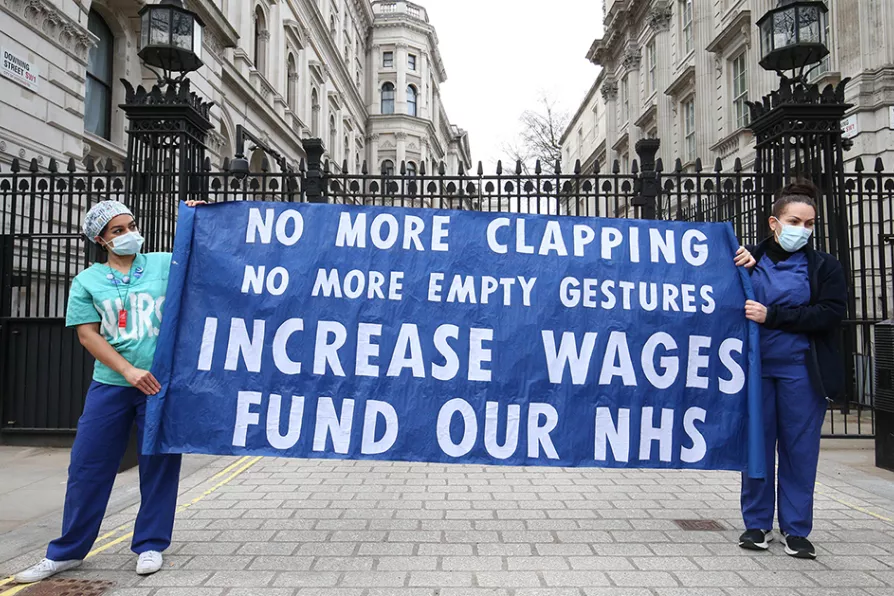The Carpathia isn’t coming to rescue this government still swimming in the mire, writes LINDA PENTZ GUNTER
Why GMB is balloting for action in the NHS
For more than a decade the NHS has been subjected to a brutal regime of cuts and there has been no co-ordinated resistance. But a turning point has now been reached, writes HELEN O’CONNOR


GMB UNION has become the first trade union in the country to open a full legal ballot for industrial action in the NHS.
As GMB members up and down the country are checking their post for their ballot papers, we know that so many of them will be asking how it has come to this.
How have we reached a situation in this country where NHS staff are so undervalued, where patient neglect and deaths are on the rise and where increasing numbers of people are denied healthcare?
Similar stories

Reversing outsourcing is the pre-election promise the government must honour, says Unison general secretary CHRISTINA McANEA

Labour warned that workers expect better as anger mounts over welfare cuts and public-sector pay












